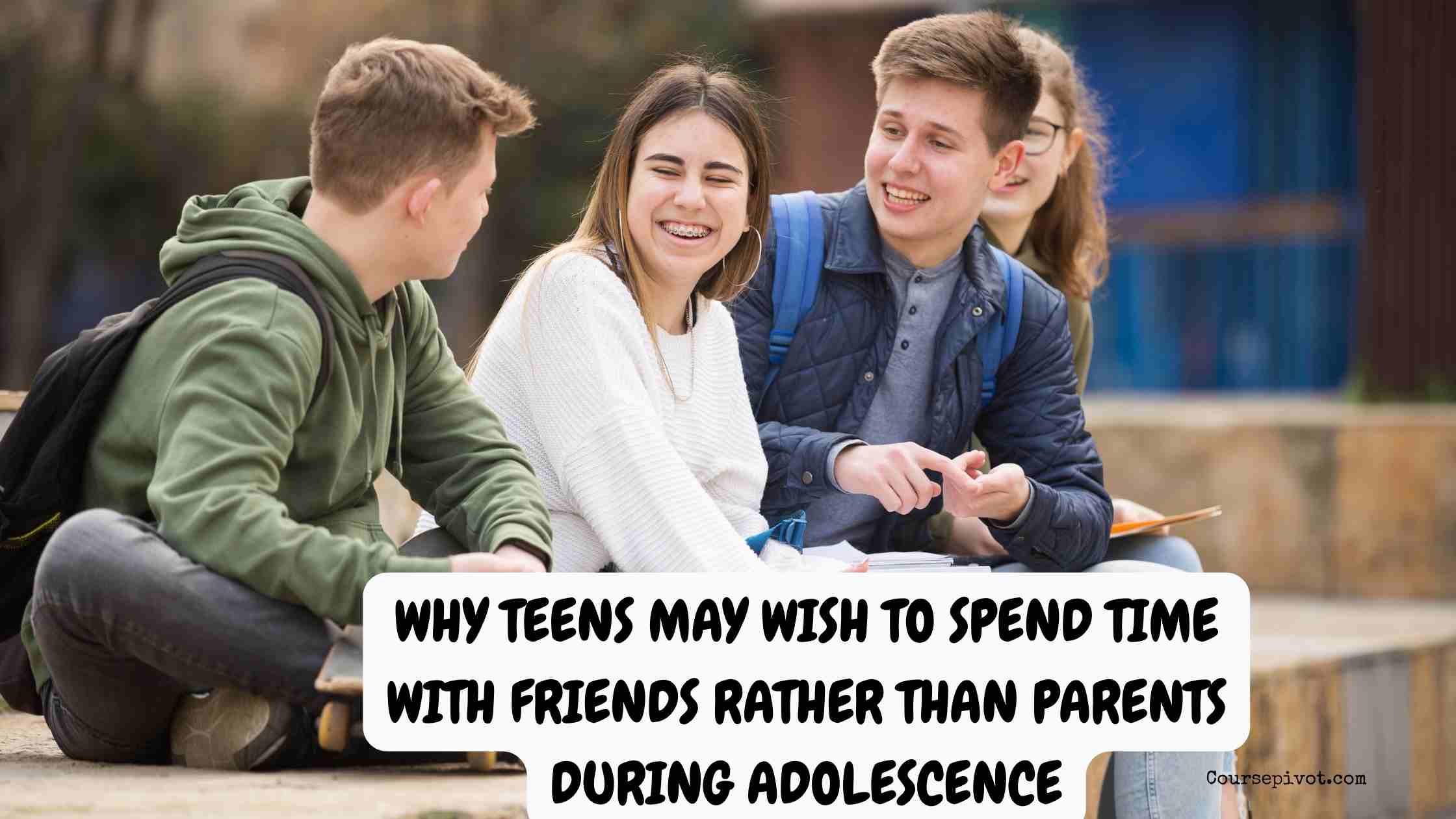
Why Teens May Wish to Spend Time with Friends Rather Than Parents During Adolescence
Adolescence is a time of transformation, and teens often gravitate toward friends over parents as they navigate this pivotal stage. I’ve noticed how my own teenage years were marked by a pull toward peers, seeking connection and independence. Understanding why teens may wish to spend time with friends rather than parents during adolescence sheds light on their developmental needs and social dynamics.
Table of Contents
I’ll explain five key reasons for this shift, based on my insights into adolescent psychology and research as of May 2025. These reasons highlight the natural drivers behind teen behavior. Let’s dive into why friends become a priority for teens and what it means for their growth.
Ever wondered why teens seem glued to their friends? It’s more than just fun—it’s about identity and growth. Ready to explore five reasons they prefer peer time?
Teens crave connection, and friends often take center stage. I’ve seen how this shift shapes their world. Let’s uncover why teens choose friends over parents.
1. Seeking Independence and Identity
Adolescence is a quest for self-discovery, and friends provide a safe space to explore identity away from parental influence. This is a top reason teens prefer friends. I’ve felt the urge to define myself through peer bonds.
- Driver. Teens develop autonomy, with 80% seeking to establish unique identities, per 2024 APA studies.
- Role of friends. Peers offer feedback and validation, shaping 60% of teens’ self-concept, per Journal of Adolescence 2025.
- Contrast. Parents represent authority, with 50% of teens feeling judged, limiting self-expression, per Pew 2024.
Why it matters? Friends support the journey to independence, crucial for teen development.
2. Shared Experiences and Understanding
Friends share similar challenges, like school stress or social pressures, creating a sense of mutual understanding parents may not provide. This reason for peer preference fosters connection. I’ve seen how teens bond over common struggles.
- Bonding. 70% of teens say friends “get” their experiences, vs. 30% for parents, per 2025 Child Trends surveys.
- Examples. Friends relate to dating drama or exam stress, with 65% of teens discussing these with peers, per NIH 2024.
- Impact. Peer empathy reduces loneliness by 40%, boosting mental health, per JAMA Pediatrics 2025.
Why it’s key? Shared struggles make friends a vital emotional outlet.
Read our blog on Increasing Concern Over the Physical Fitness of Children and Adolescents
3. Social Skill Development
Spending time with friends helps teens hone critical social skills, like conflict resolution and communication, in a low-stakes environment. This benefit of peer time prepares them for adulthood. I’ve learned how peer interactions sharpen these skills.
- Skills gained. 85% of teens improve negotiation and empathy through peer conflicts, per 2024 Developmental Psychology.
- Contrast. Parent interactions are hierarchical, with 60% of teens feeling less free to experiment, per 2025 Adolescent Research Review.
- Outcome. Strong peer bonds increase social competence by 50%, aiding future relationships, per APA.
Why it matters? Friends are a training ground for lifelong social success.
4. Exploration of Social Status and Belonging
Adolescence heightens the need to belong, and friends offer a sense of status and community within peer groups. This reason teens choose friends ties to social dynamics. I’ve noticed how teens crave acceptance in their circles.
- Need. 90% of teens prioritize peer acceptance, with 70% feeling validated by group inclusion, per 2024 Pew Research.
- Role of friends. Peer groups define status, with 55% of teens spending 5+ hours daily with friends, per 2025 Common Sense Media.
- Contrast. Parents provide unconditional love but less social currency, per 2024 Journal of Youth Studies.
Why it’s significant? Friends fulfill a deep need for belonging and recognition.
5. Fun and Freedom
Friends offer spontaneity and fun, free from the rules or expectations often tied to parental time. This reason for preferring peers reflects teens’ desire for enjoyment. I’ve cherished the carefree moments with friends during my teens.
- Appeal. 80% of teens cite fun as a top reason for peer time, with activities like gaming or hanging out, per 2025 YRBS data.
- Freedom. Friends impose fewer restrictions, with 60% of teens feeling freer to express themselves, per Child Trends 2024.
- Contrast. Parent time often involves chores or guidance, less appealing to 50% of teens, per 2025 surveys.
Why it matters? Friends provide joy and a break from structure, vital for teen well-being.
Read our blog on How Would Your Friends Describe You
What’s Next for You
Understanding why teens may wish to spend time with friends rather than parents during adolescence is like decoding a natural phase of growth. I’ve been inspired by how these five reasons—seeking independence, shared understanding, social skill development, status and belonging, and fun—reveal the developmental pull toward peers. With 75% of U.S. teens spending 20+ hours weekly with friends in 2024, per Pew, this shift is universal. Dismissing it risks misunderstanding teens; embracing it fosters support. Will you see teen peer time as rebellion, or support their growth?
Here’s how to engage:
- Encourage balance. Promote friend time while maintaining family connection, like weekly dinners.
- Listen. Ask about their friends to understand their world, building trust with 70% of teens, per APA.
- Learn more. Explore resources from Child Trends or NIH on adolescent development.
Friends shape teens’ paths. Why it matters is about guiding them wisely. Start today to support their journey while staying connected.
Cite this article
You can copy and paste your preferred citation format below.
Martin, L. & Arquette, E.. (2025, May 31). Why Teens May Wish to Spend Time with Friends Rather Than Parents During Adolescence. Coursepivot.com. https://coursepivot.com/blog/explain-why-teens-may-wish-to-spend-time-with-friends-rather-than-parents-during-adolescence/



